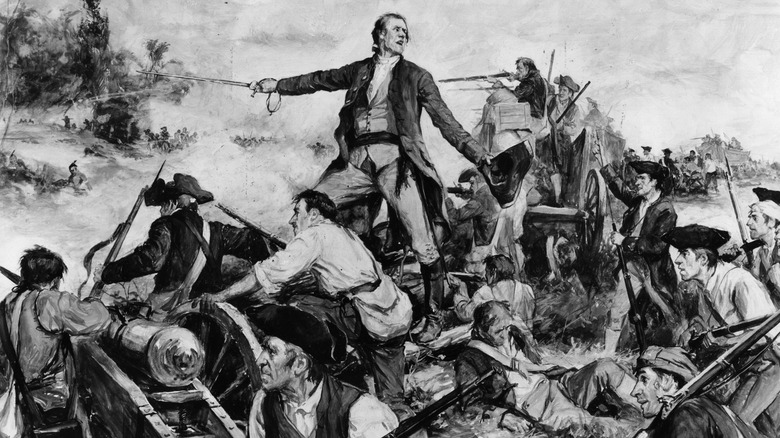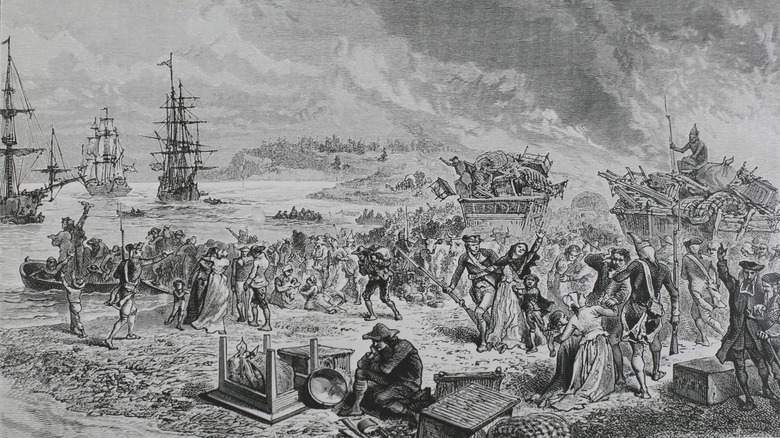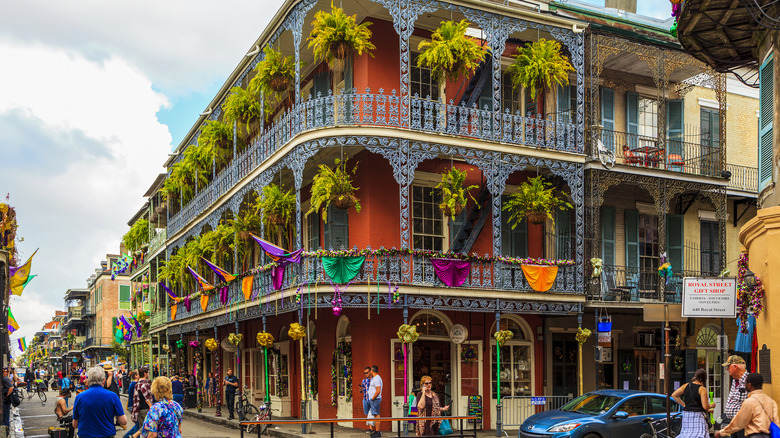How The French And Indian War Changed Louisiana
Louisiana has often felt like a different country. Their cuisine is unique, parishes govern their towns, and some people speak French. Of course, most people know this is because Louisiana was pretty much part of France before. But it's all thanks to the French and Indian War that Louisiana holds on to its Frenchness so firmly.
The French and Indian War was a conflict between the British-controlled United States, France, and France's Native American allies. Also called the Seven Years' War, it lasted from 1756 until 1763. As History explained, the French wanted to expand their reach into North America. So the French began moving down from Canada to Pennsylvania and started building fortifications. The British didn't like this at all and tried to engage the French.
The war even established George Washington as a vital member of the army, even though he experienced a major loss during his first command. In fact, the British were losing the first few years but eventually turned things around. Most borders weren't very clear, and the Native Americans controlled many areas beyond the first 13 states.
The British took the chance to ensure control over much of North America. At the time, France held what we now call Quebec and also claimed the colony of Louisiana, which includes present-day Louisiana, Mississippi, and areas of Tennessee, said Mississippi History Now.
French soldiers first took control of the area in 1682, and by 1690 had firmly established themselves as the colonial power there.
The exile of the Acadians
Even though the French controlled Louisiana, much of the French and Indian War focused on Canada and much of the north. The British hoped to control the entirety of Canada and also remove the French from Pennsylvania. So let's be clear, the British did not want to take Louisiana at that time. You have to wait for the Louisiana Purchase for it to join the United States, and that didn't happen until 1803.
Since the French seemed to be unstoppable, the British governor of New Brunswick in Canada felt he had to do something drastic. During this time, there was a small colony of Frenchmen called Acadia, now Nova Scotia, wrote Encyclopedia Britannica. Acadia had been fully controlled by both the French and the British at various times, and in 1755, it was fully held by the British and ruled through the administration in New Brunswick. In fear that the Acadians will side with their enemy, the governor of New Brunswick decided to expel the Acadians from their homes.
According to Mental Floss, some 14,000 Acadians lost their homes and were told to leave. This became known as the "Great Upheaval." The event was pretty traumatizing and ended up inspiring Henry Wadsworth Longfellow's poem "Evangeline." Written several years later, it followed an Acadian girl searching for her lost love during the Great Upheaval.
In search of new homes, the Acadians ended up scattered throughout various places in North America. Some found their way to the French-controlled colony of Louisiana.
They're part of Louisiana identity
Mental Floss noted that the Acadians, despite being French, spoke a little differently than other French people. Acadian, in their accent, sounded more like "a-cad-JYEN." This word gave rise to the term Cajun.
The Cajuns, of course, heavily influenced the identity of Louisiana, especially New Orleans. Acadians, or now the Cajuns, moved from the ports of New Orleans to other areas farther west in Louisiana. They also settled in towns in Mississippi and as far as Illinois.
From their food, language, and music, the Cajuns helped create the identity of the state. The official symbol of Louisiana is the fleur-de-lys, which represents the French royal family.
Cajun culture also played a role in Creole culture. Creoles were people, usually of mixed race, born in Louisiana. Many Creoles were children of slaves and French or Spanish people.
The website 64 Parishes said the French and Cajun influence continued even after the French ceded control of Louisiana to the Spanish after losing the French and Indian War in 1763. The Spanish sometimes relied on remaining Cajun and French officers in outer towns to govern people. Over time, more Acadians moved to Louisiana, growing the population.
The Acadians were forcibly removed from their homes thanks to the French and Indian War. This terrible event, though, built the foundation of the Louisiana we know and love today.
It's not all doom and gloom, though. Encyclopedia Britannica reported that in 2003, Queen Elizabeth II issued a Royal Proclamation apologizing for exiling the Acadians from their lands.


